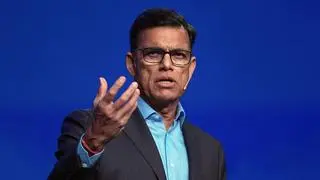India is is at the cusp of economic transformation, driven in part by tech-enabled businesses. However, we’re still grappling with a paradox between ambition and reality. Our ambition is to be a $5 trillion economy, while the reality is that nearly 90 per cent of our population makes less than ₹12,000 ($170) monthly. To help bridge this gap between ambition and reality, we must requires a focus on three pillars: 1. Enabling consumption to drive demand:Consumption is expected to constitute a $6 trillion economic opportunity by 2030. Driving consumption involves expanding access to credit and utilisation. Fintech players can contribute to this by helping more Indians access credit, incentivising the responsible use of credit and promoting awareness on for ‘credit scores’. This will promote responsible credit behavior and drive demand for thousands of small businesses and consumer entrepreneurs creating innovative products and services for an aspirational India 2. Enabling wealth creation: India houses the third largest start-up ecosystem in the world, which has created over 5.2 lakh jobs across the country. The growth of start-ups, coupled with an influx of capital has directly contributed towards wealth creation by way of Employee Stock Ownership Plans (ESOPs) being offered to employees. In Budget 2020, relaxations related to the deferment of taxability of ESOPs were proposed in the case of registered start-ups. In addition, Criteria to recognise employers were also called out. This year’s budget should is an opportune time to consider easing liquidity needs for employees when it comes to ESOPs. This will build confidence in ESOPs as a tool. Further, I believe that the provisions for relaxation of ESOP taxation should be offered to all private companies that do not fall under the start-up definition of the government. 3. Enabling trust to drive digital transactions: Actions such as additional factor authentication and tokenisation can help boost consumer confidence. My only callout here is for the ecosystem to work together and introduce These solutions should be introduced in a manner that doesn’t overwhelm the consumers or the providers of these services.
Forecast
Fintech is a tool to expand economic opportunity to the broad population, at scale. With a focus on digital to reduce risk and increase access, I anticipate policies that support the growth of the fintech ecosystem in the country.
Flashback
In 2021, the Finance Ministry announced ₹15 billion to support and boost digital payments adoption. Policy measures like setting up of a dedicated fintech department by RBI, discussions on digital lending and digital banking are steps forward to streamline and promote innovations in the fintech space.
Kunal Shah is a serial entrepreneur and Founder of CRED







Comments
Comments have to be in English, and in full sentences. They cannot be abusive or personal. Please abide by our community guidelines for posting your comments.
We have migrated to a new commenting platform. If you are already a registered user of TheHindu Businessline and logged in, you may continue to engage with our articles. If you do not have an account please register and login to post comments. Users can access their older comments by logging into their accounts on Vuukle.